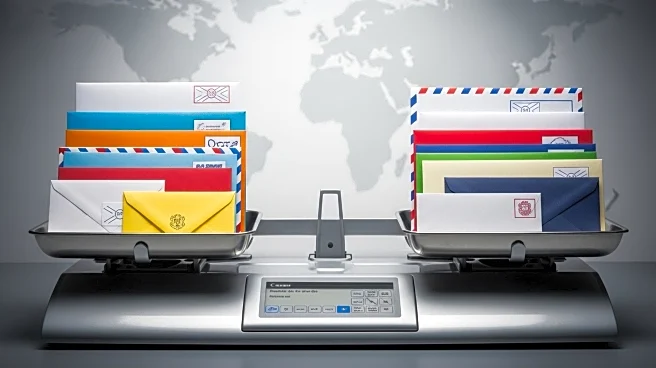What's Happening?
International postal services have halted certain mail deliveries to the United States following the removal of a tariff exemption by President Trump. Previously, packages valued under $800 were exempt from tariffs, but this exemption has been lifted, leading to increased mailing costs. As a result, postal services from nearly 30 countries, including major European nations and several Asia-Pacific countries, have suspended deliveries to the U.S. to adjust to the new tariff rules. The suspension affects packages but not letters, with some services opting to hold recipients responsible for duties and taxes on packages arriving after the new rules take effect.
Why It's Important?
The suspension of postal services to the U.S. highlights the broader impact of tariff changes on international trade and logistics. Businesses and consumers relying on international shipping may face increased costs and delays, affecting e-commerce and global supply chains. Countries with suspended services must adapt to new billing systems to manage the tariffs, potentially leading to higher postage fees. This development underscores the complexities of international trade policies and their ripple effects on global commerce, particularly for small businesses and consumers who depend on affordable international shipping.
What's Next?
Postal services have indicated that the suspension will continue until they can develop systems to accommodate the new tariff rules. Some services are partnering with U.S. customs-authorized payment operators to create new billing systems, which may result in increased postage fees. The U.S. customs will temporarily accept alternative fixed fees based on the tariff rate of the country of origin until late February. The situation remains fluid, with postal services awaiting further details from the U.S. government to fully adapt their operations.









